
OneWeb: Dominic Cummings and the £400m public bailout to rescue an imperilled satellite internet firm
Each a little bigger than a fridge, they are attached to a Russian rocket which will travel 750 miles up into what is known as low Earth orbit.
Here they will stay, at an altitude 30 times closer than that of more traditional communication satellites, in a zone previously the domain of international space stations and the Hubble telescope, and if all goes well provide internet connectivity, in time, to every corner of the globe.
 A Russian rocket will be used to take the UK bankrolled satellites 750 miles up
A Russian rocket will be used to take the UK bankrolled satellites 750 miles up
They are a marvel of innovation and technology, but even more remarkable is the fact they belong to you.
The company behind the launch is both funded and owned by the British taxpayer, after Boris Johnson authorised spending £400m rescuing this unknown company that was in bankruptcy proceedings in the US at the height of the pandemic.
Sky News has assembled the complete story of the acquisition for the first time, starting a year ago when the company was in peril and involving doors of the most senior politicians opening throughout Whitehall at remarkable speed despite the grave doubts of civil servants.
The purchase
At the start of last year, a little known firm named OneWeb was filing for Chapter 11 bankruptcy in a New York court, halting its expansion after losing a key funder.
But today OneWeb is back putting satellites in space every few weeks - after the business caught the eye of Dominic Cummings, the PM's former senior adviser, who helped to rescue OneWeb through Whitehall.
But the UK investment alone did not provide enough cash for OneWeb.
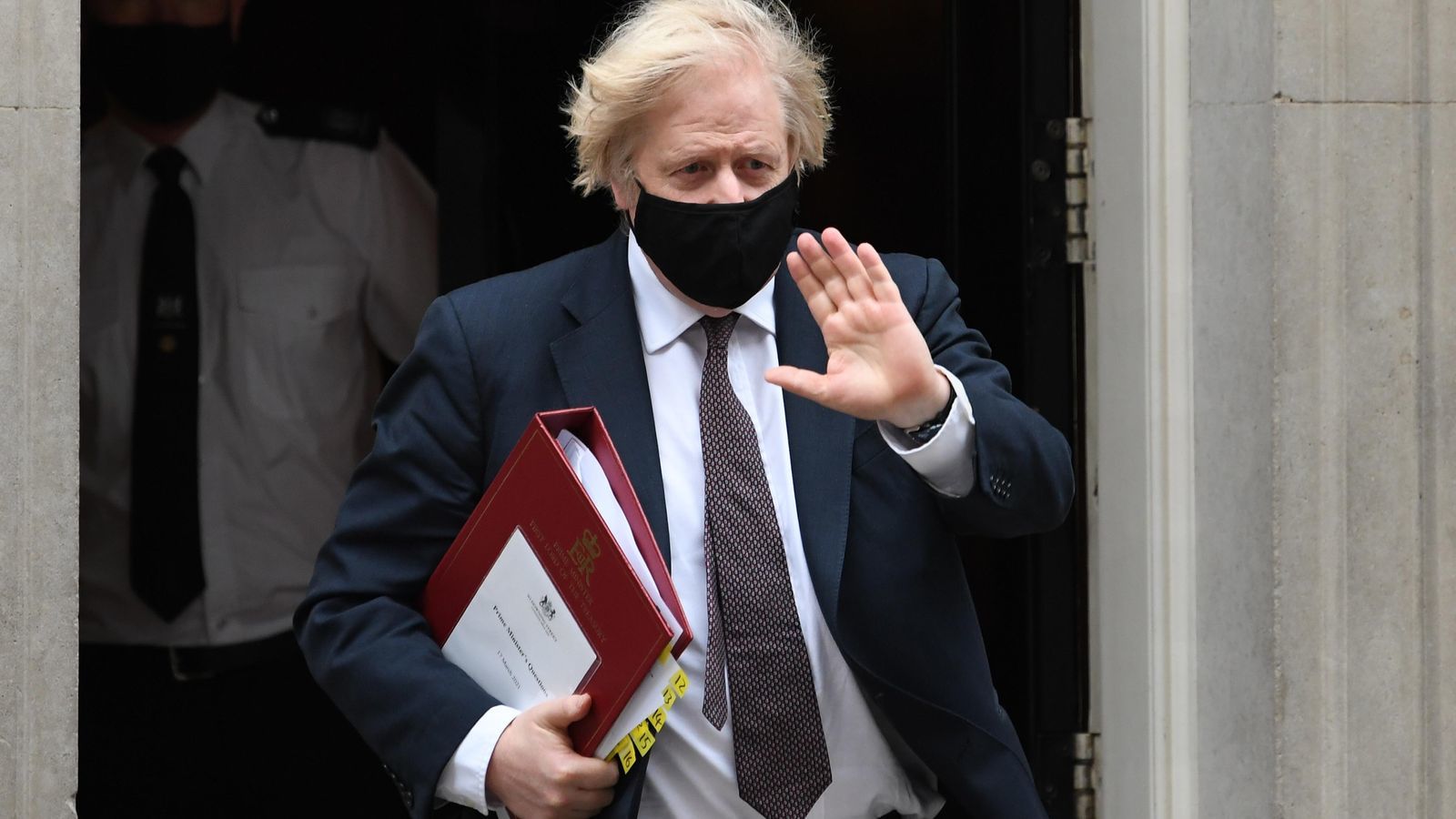 Boris Johnson helped play matchmaker in securing funding
Boris Johnson helped play matchmaker in securing funding
So then the prime minister, no less, helped play matchmaker, sorting out a partnership with an Indian telecoms billionaire who matched Britain's payment, meaning together they could perform a rescue operation, against the formal recommendation of Whitehall officials.
In exchange for Britain's £400m the taxpayer now owns a 33% share in the firm, meaning everyone in the UK now has a stake in the latest stage of the global space race - to be master of the low Earth orbit, a slice of space which is coveted by billionaires as well as governments.
The risks
The venture is unprecedented.
OneWeb's mission is to use its low orbit satellite network to provide internet connections for business and governments in every corner of the globe, from Alaska to Afghanistan.
This involves pioneering technology, not yet commercially available and there are no working terminals to watch it function in practice.
Nor does the firm yet have enough money to complete the task, despite the huge amounts secured from UK taxpayers.
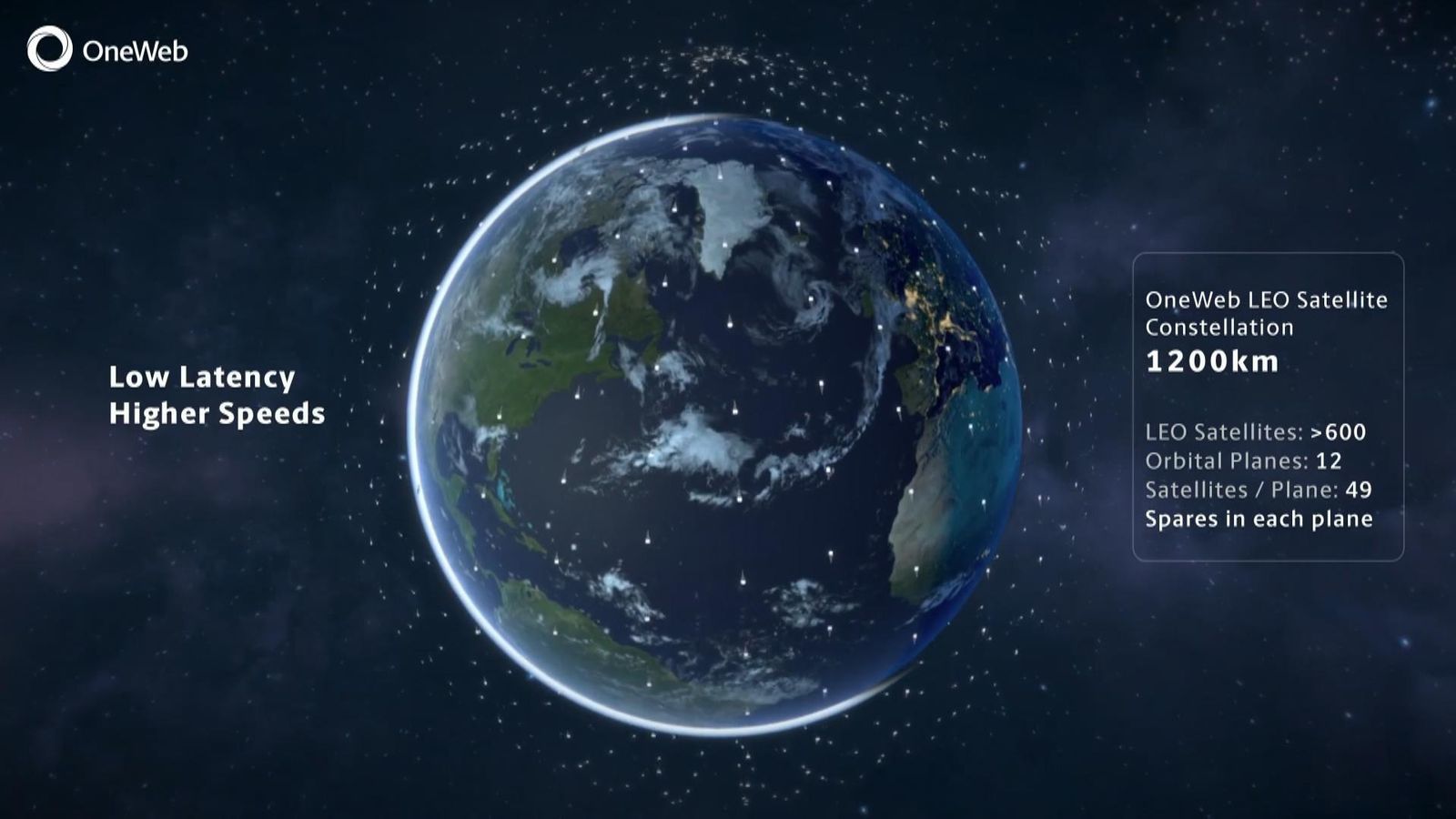 OneWeb aims to use its low orbit satellite network to provide internet connections globally
OneWeb aims to use its low orbit satellite network to provide internet connections globally
OneWeb says it still needs to find another $1bn (£720m) or so to get the rest of its satellites into space, but it promises none of this will come from the British government.
And the entire venture faces stiff competition from one of the richest men in the world - Elon Musk is directly competing with OneWeb, since his SpaceX programme also seeks to provide global internet connectivity direct to consumers from his satellites in low Earth orbit.
There is no suggestion that OneWeb has done anything wrong.
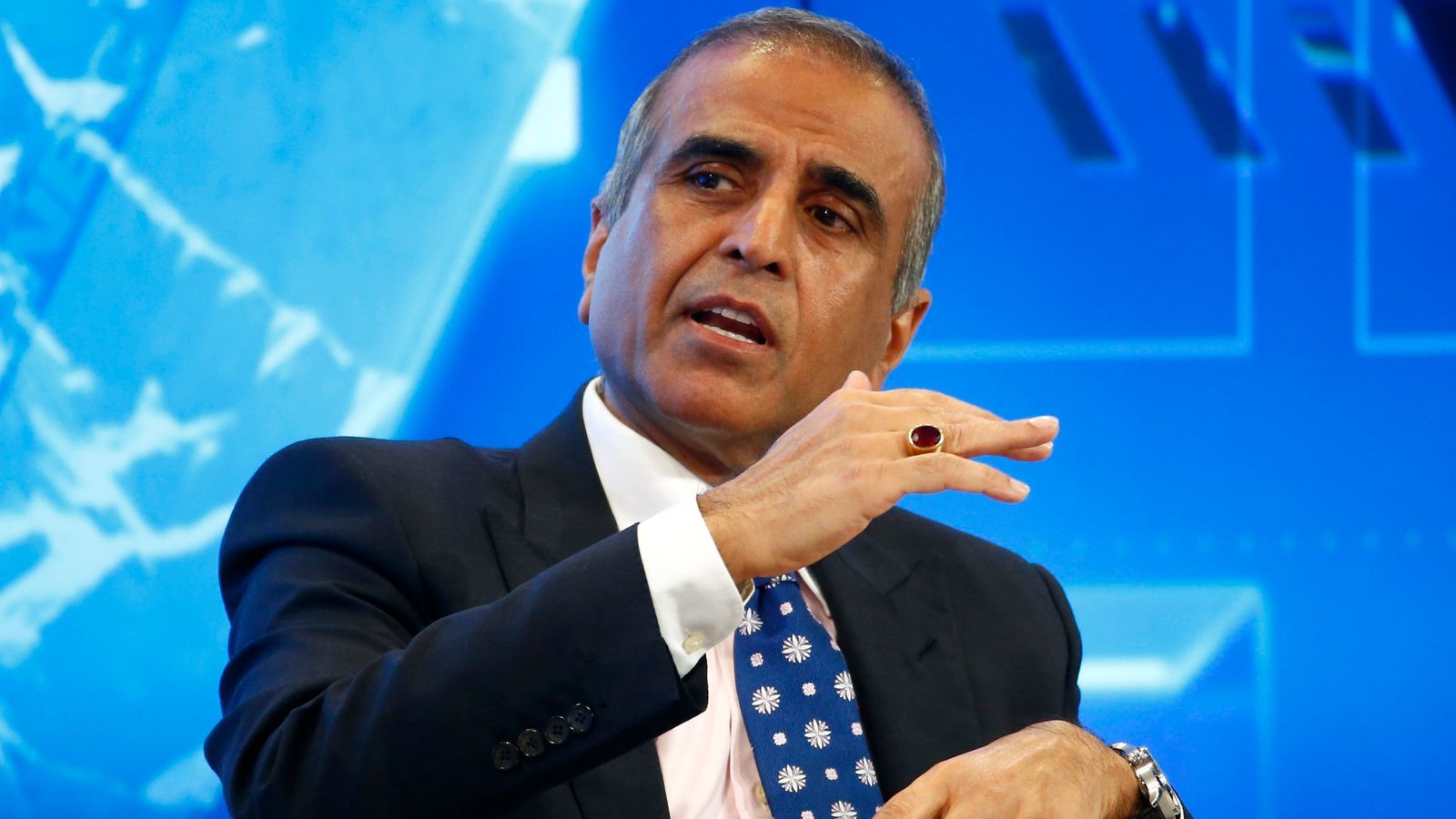 The PM secured the investment of one of India's richest men, Sunil Bharti Mittal
The PM secured the investment of one of India's richest men, Sunil Bharti Mittal
Indeed, OneWeb appeared to have pulled off an incredible commercial feat - to emerge from bankruptcy after securing $1bn of funding jointly from the British government, the most blue chip of investors with the global diplomatic clout that a sovereign investment brings, and also backed by the deep pockets of communications firm Bharti Global, run by one of India's richest men Sunil Bharti Mittal.
How OneWeb attracted government attention
OneWeb's head of government relations Chris McLaughlin told Sky News that the journey from bankrupt challenger satellite firm towards becoming a part-nationalised company began almost exactly a year ago when one of its funders - suddenly overexposed because of the arrival of the pandemic - pulled out.
This meant the firm had to go into Chapter 11 bankruptcy proceedings.
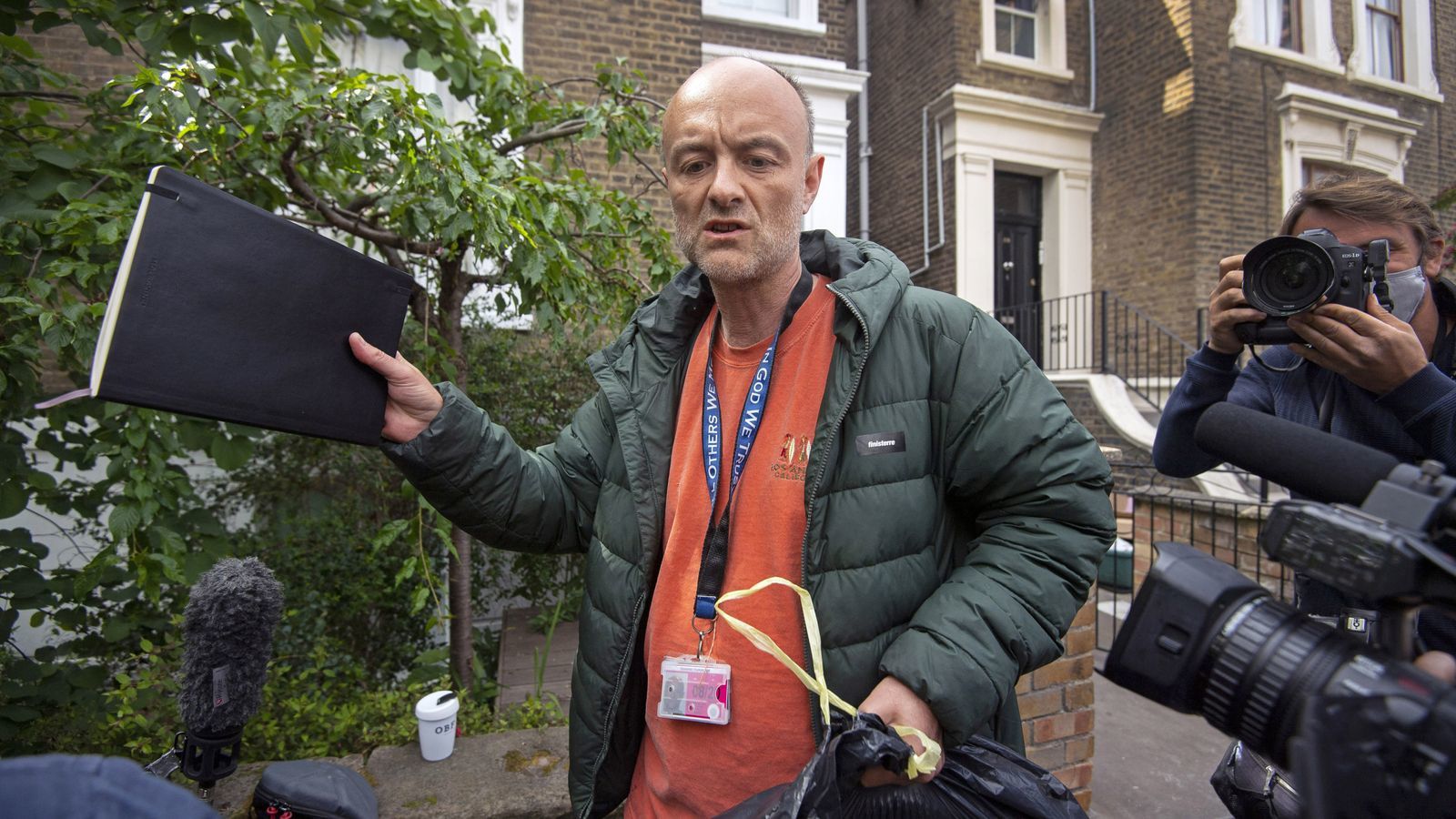 OneWeb said Dominic Cummings was critical to getting the firm get heard
OneWeb said Dominic Cummings was critical to getting the firm get heard
As a result in March last year, the company called the UK government to ask if they might include OneWeb in one of its new coronavirus loan programmes.
They knocked on doors all over Whitehall, trying first the Department for Digital, Culture, Media and Sport, then the UK Space Agency and eventually the Treasury, which had not finalised how the loan programmes would work at time of approach.
Dominic Cummings intervenes
They went "tapping on the door" of lots of different parts of Whitehall.
The firm argued it was too good an opportunity to pass on.
Mr McLaughlin told Sky News: "We said we have a global asset that would put Britain on the map, give you the connectivity you need going forward. Are you going to wake up one morning and discover it has been bought by the US, Canada, China or EU?"
However, he said one man at the heart of government - Dominic Cummings, then the prime minister's senior adviser - was critical to making the firm get heard.
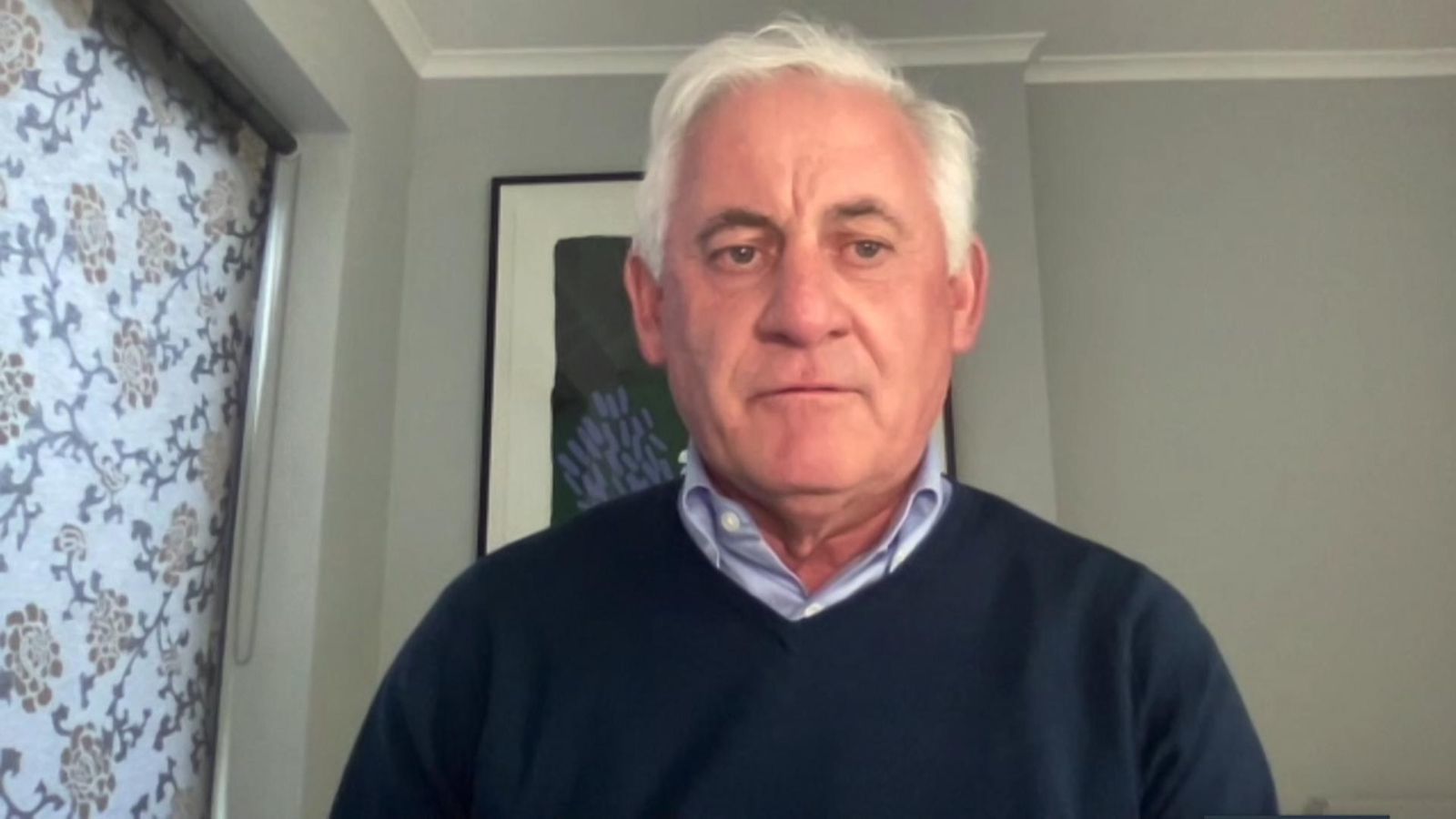 OneWeb's Chris McLaughlin says the firm wrote 'lots of letters' to different parts of government
OneWeb's Chris McLaughlin says the firm wrote 'lots of letters' to different parts of government
He said: "We reached out to a number of departments in the UK government - and it was only when we caught briefly the eye of Dominic Cummings, who was looking at ways to emulate (US science and innovation programme) Darpa and could begin to think about how tech of tomorrow could come into play, we got a hearing.
"He very swiftly disappeared, we then dealt with the Treasury."
Asked how OneWeb made direct contact with Mr Cummings, Mr McLoughlin replied only that the firm wrote "lots of letters" to different parts of government.
A source added that representatives of OneWeb did not meet Mr Cummings face to face, but exchanged texts and emails with him, saying there was communication via "backchannels".
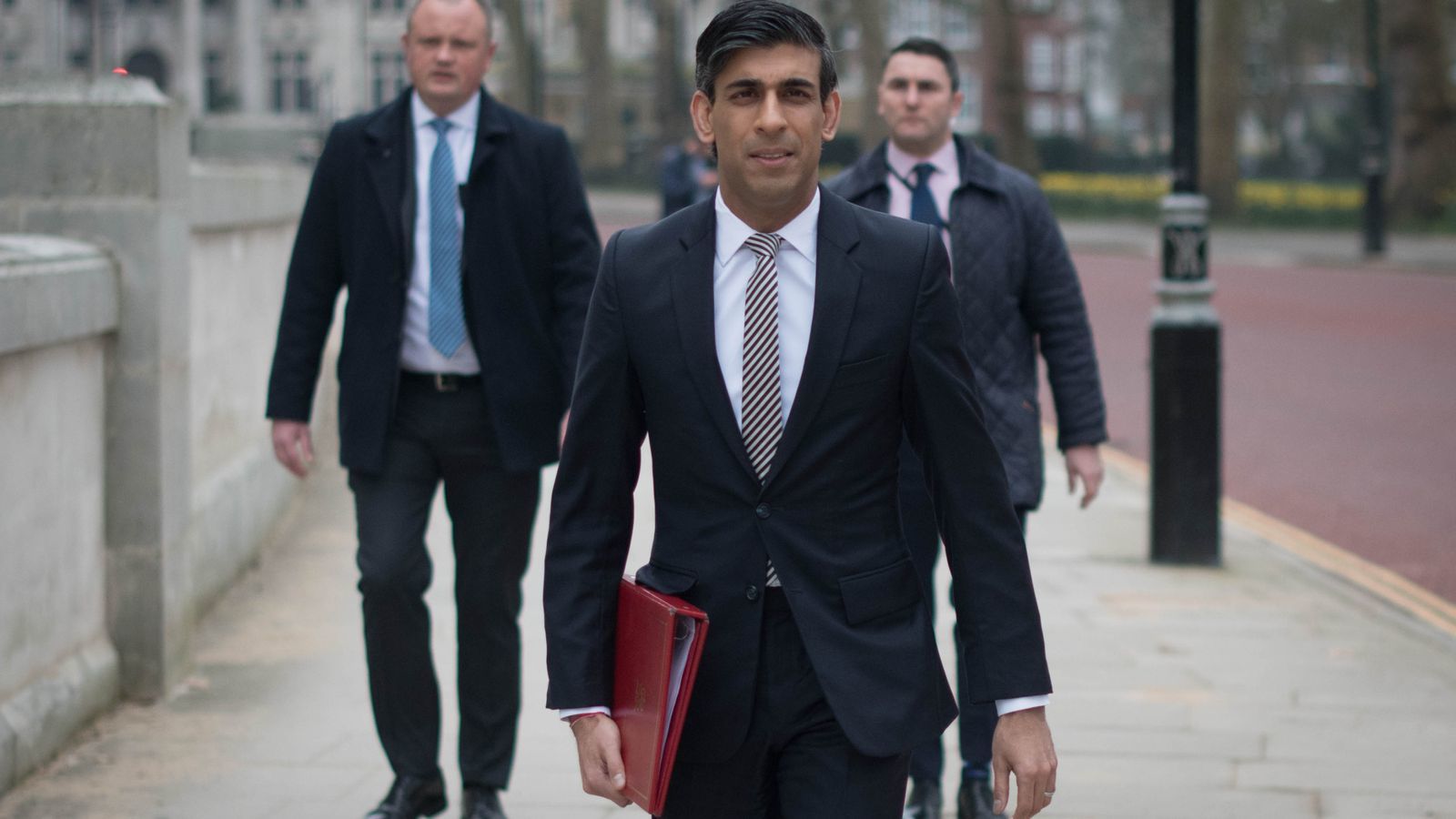 Chancellor Rishi Sunak personally approved the investment despite Treasury doubts
Chancellor Rishi Sunak personally approved the investment despite Treasury doubts
They stressed that Mr Cummings was only involved for a brief period, although they believe his intervention - which came at the height of his power in Number 10 - was pivotal to the investment, not least because of hostility elsewhere in Whitehall.
Once the PM's adviser had suggested it should go ahead, Mr McLoughlin said responsibility for the detailed negotiations moved to the Treasury, rather than the business department which has always formally had ministerial responsibility for the project.
Chancellor Rishi Sunak personally approved the investment despite Treasury doubts, government documents reveal.
Boris Johnson's secret meeting
Britain's £400m in funding was not enough though.
To make the satellite firm viable once more, it needed more cash than could be provided by taxpayers alone.
This is where Mr Johnson became involved.
Mr Johnson's advisers identified Sunil Bharti Mittal, who had been involved in OneWeb at the very start but later withdrew, and invited him for a meeting in Number 10 in June 2020.
Mr Mittal - the founder of Bharti Enterprises and the tycoon behind Airtel - had been expecting to be meeting a "couple of young researchers" in Downing Street "but instead he got Boris taking (him) out into the garden," a source told Sky News.
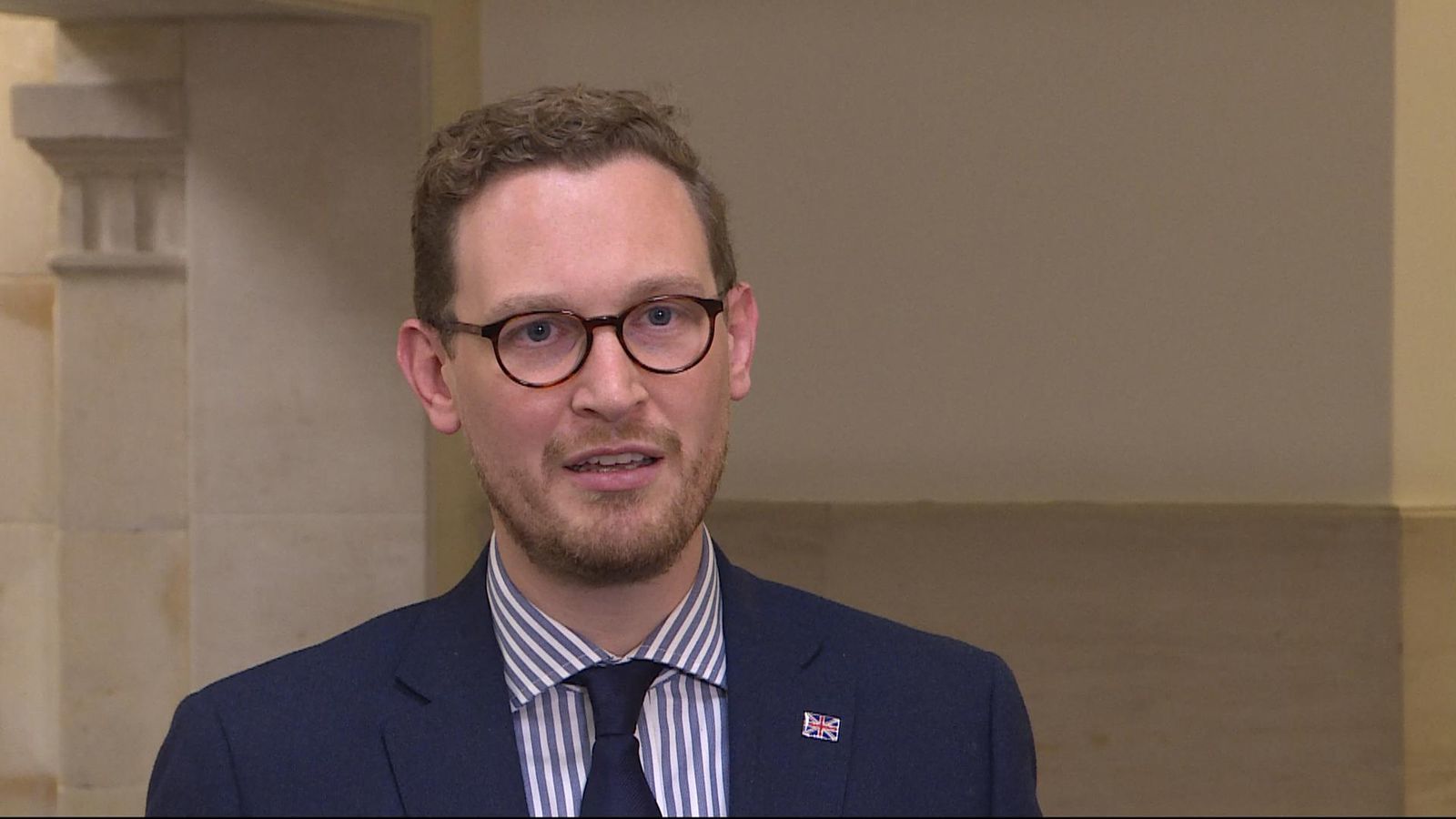 Labour's Darren Jones is among those to question the public investment
Labour's Darren Jones is among those to question the public investment
The source close to the deal continued: "The meeting was an approach by Boris Johnson who said we're up for this, what about you would you come in as a (co-investor).
"(The British government) were saying: 'we really want this as an asset but we're not a telecoms operator and this is a whole new area for the British government to be involved in'. They haven't done it since Rolls Royce."
According to this account, Mr Johnson suggested Mr Sunil entered into a partnership over the investment.
The source continued: "And Sunil said I'll come in if you're committed. 'Is the British government committed or not?' It was a one-to-one between the two men, and Boris said 'we're committed' and Sunil said 'well we are too'."
The deal was done days later, public records show.
The disclosure of this June meeting - where Mr Johnson is claimed to have encouraged one of India's richest men to put money into a technology company - was not recorded on Number 10's quarterly transparency data which lists his meetings with outside companies and interests.
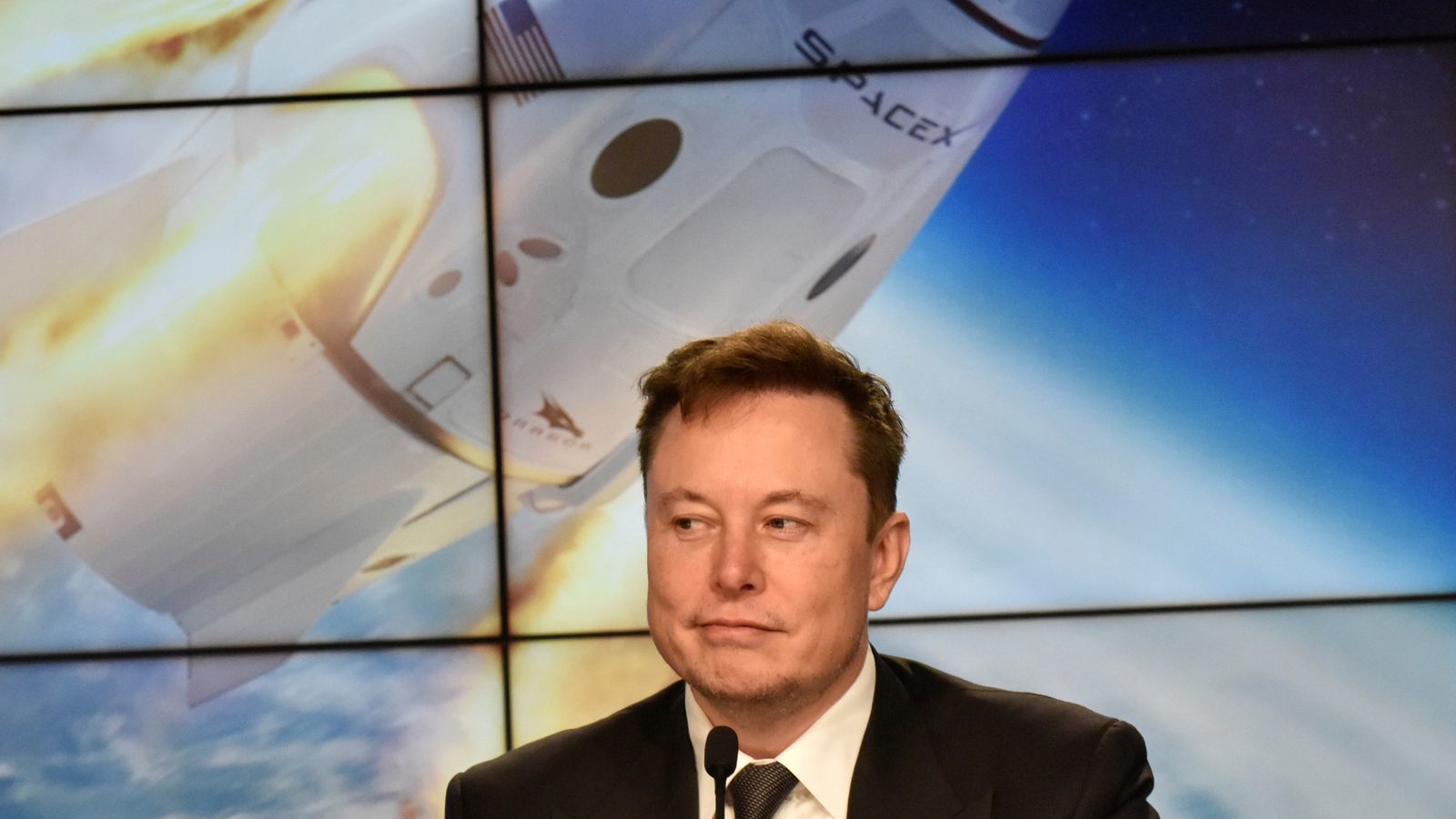 Elon Musk's SpaceX is a direct competitor to OneWeb
Elon Musk's SpaceX is a direct competitor to OneWeb
The meeting also took place in the middle of commercially sensitive negotiations between government and those involved over the price taxpayers might pay for OneWeb, which were not resolved until the following month.
Number 10 told Sky News that Mr Mittal was invited to Downing Street by Number 10 officials rather than the prime minister but confirmed he did meet Mr Johnson.
They stressed it was a brief and informal meeting and claimed nothing substantial was discussed, which is why it was not recorded in the official log.
However, an interview given by Mr Mittal in the Sunday Telegraph in November also suggests the PM and the tycoon had a pivotal conversation about the deal.
The interview says when Mr Mittal "met with Boris Johnson in Downing Street in June to discuss a secret joint venture to launch Britain into the space race, the deal took shape at rocket speed".
Civil service objects
Despite political and ministerial enthusiasm for the deal, officials in Whitehall were dubious about the investment, believing it too risky.
On 26 June, days after Mr Johnson met Mr Mittal, Sam Beckett, the acting permanent secretary at the Department for Business, issued a formal warning, known as a "ministerial direction".
She said that proper due diligence had not been done on the deal and it was "hard at this time to be confident" that the project would generate the promised cash and warned that under some scenarios, all the £400m invested could be lost.
Ms Beckett was overruled by then business secretary Alok Sharma.
Three weeks later, an alternative permanent successor was appointed to be the head mandarin in the business department, although there is no suggestion of a link between the two decisions.
OneWeb says it took time for Whitehall to understand the value of the company, which Mr McLoughlin calls a "bargain", because the initial shareholders who invested £3bn in the company were wiped out in the bankruptcy process last year.
He said some vested interests - including big established companies - were against the OneWeb deal because they wanted to build from scratch a British replacement for the EU Galileo project, which there were fears Britain might lose access to after Brexit.
Do we need it?
Why the UK government needed to invest in an satellite internet provider at all bewilders some MPs.
Darren Jones, Labour chairman of the Business Select Committee, is amongst those asking that question.
 Marek Ziebart of UCL says SpaceX are currently winning the race
Marek Ziebart of UCL says SpaceX are currently winning the race
He told Sky News: "The OneWeb satellite network is built to provide internet access, the satellites are very close to the earth and there to provide access to the internet but here in the UK we have access to the internet pretty much, there's areas where we can improve it but there has never been a suggestion that we would buy a commercial satellite company to do that, and so I'm a bit amiss as to why we've spent £400m to do that."
The company suggests it is a once in a lifetime opportunity to secure part control of a key part of future space infrastructure, and that Britain's purchase helped keep it out of the hands of the Chinese.
Meanwhile, analysts suggest that OneWeb's competitor may have stolen a march.
Marek Ziebart, professor of Space Geodesy at UCL, told Sky News: "They're not the only people doing it, they have a direct competitor in Elon Musk's company SpaceX.
"And if we think of this as a race to get the service in orbit, developing and delivering such technology, SpaceX are winning that race, SpaceX has a thousand satellites in orbit, OneWeb have 100 - SpaceX have working internet terminals, from which you can get broadband connectivity to their satellites, working now, OneWeb aren't there yet."
On Friday, advisers at the Department for Digital Culture Media and Sport were briefing that SpaceX could play a part in the Project Gigabit broadband rollout, alongside OneWeb which the government part owns.
It may be they have to use the competition.
It will be some months, maybe even years, before we learn the future of OneWeb.
The firm has 110 satellites in the sky and will have 146 after Thursday, with seven of the eight ground stations around the world "in varying states".
The first terminals should work in May and remaining satellites should be in the sky by June, the company hopes and it should be testing some beta services by the end of 2021, rolling out services next year.
Only then will Downing Street know if its investment will pay off, and whether the PM's gamble on space was the right one.










